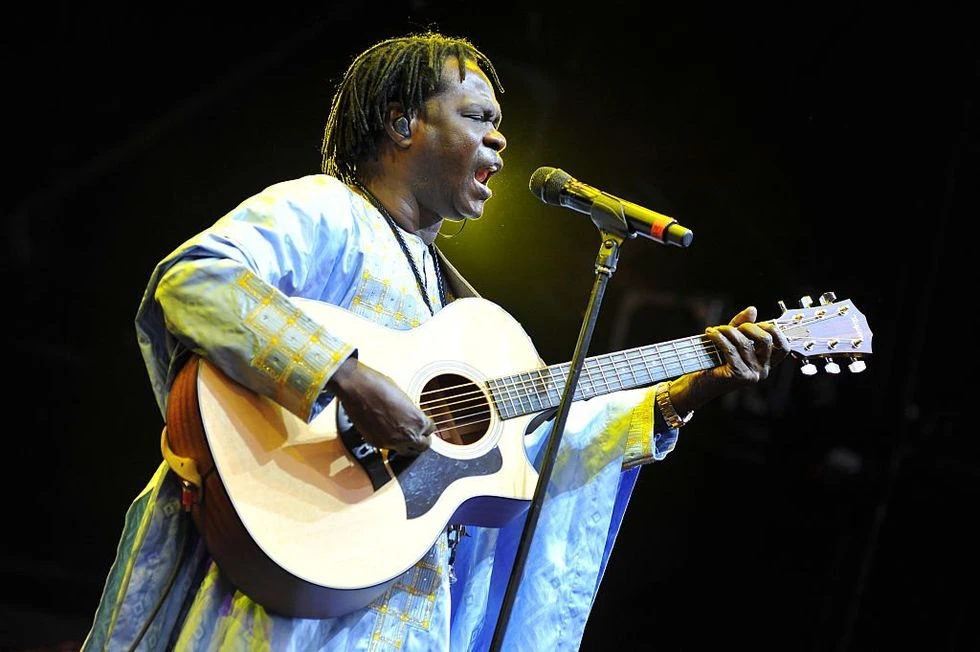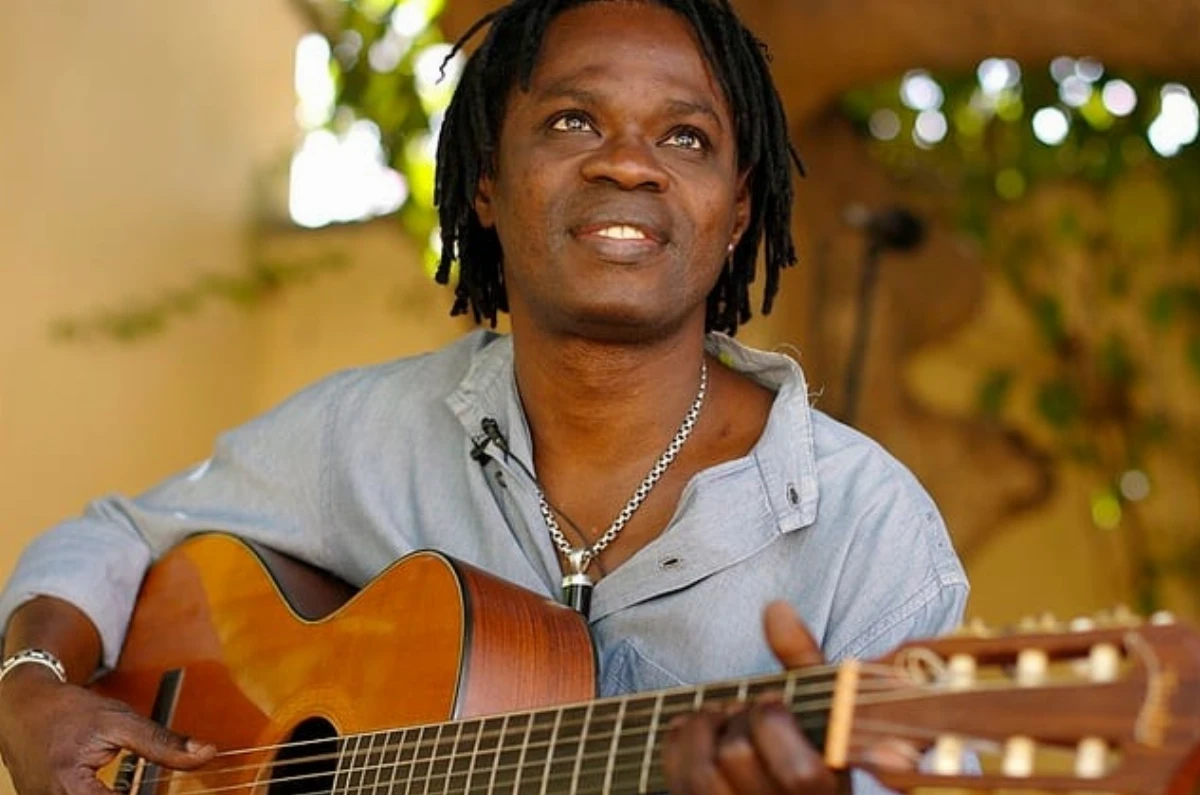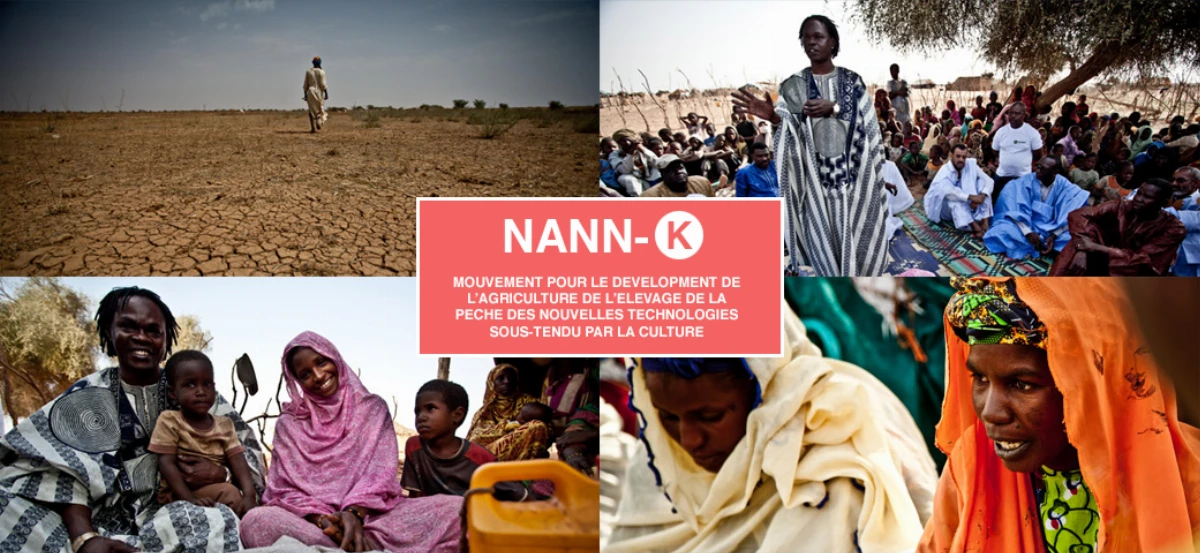Baba Maal is a true definition of not allowing one’s background be a reason to remain at the back. His music cut across boundaries and cultures. Read more to know about him!

Baaba Maal is a Senegalese singer and guitarist known for his musical style, which blends traditional African rhythms with modern and classical instruments. He belongs to the semi-nomadic Fulani people.
Despite his international recognition, he has always acknowledged his roots by singing in Pulaar, the Fulani dialect of the Senegal River valley, promoting their cultural heritage. His music has gained international acclaim, and he's also known for his humanitarian work as a UN Goodwill Ambassador.
Summary
- Baaba Maal is a Senegalese singer-songwriter known for blending traditional Fulani music with classical style and instruments.
- His unique musical style has earned him international acclaim beyond his Pulaar environment as well as notable collaboration.
- Maal is a dedicated humanitarian who is actively involved in combating desertification through his foundation, Naan-K.
- His influence extends to global platforms, where he serves as a UN Goodwill Ambassador and has received prestigious recognition, including a Grammy nomination.
Baaba Maal: Early Life and Education

Born November 12, 1953, in Podor, Senegal, Baaba Maal is a Senegalese musician known for blending traditional African rhythms and modern Western musical styles.
His father was a muezzin, a caller to prayer at the local mosque, which exposed Maal to the power of the human voice from a young age. His mother taught him the folk songs of the Tukulor people and the rhythmic patterns of women's work songs.
He studied music in Dakar, the capital of Senegal, and later in Paris, where he furthered his understanding of musical theory and notation. A pivotal moment in his musical journey was his collaboration with the blind guitarist Mansour Seck, who became his mentor and lifelong friend.
Together, they embarked on a two-year musical pilgrimage across West Africa, engaging with the region's diverse musical traditions.
Maal's early life and education laid the foundation for his unique musical style, seamlessly blending traditional Fulani melodies with Western influences. His ability to bridge these worlds has made him one of Africa's most celebrated and influential musicians.
Baaba Maal Musical Career and Notable Collaboration
Baaba Maal is a renowned Senegalese singer-songwriter who has become a global ambassador for the musical heritage of West Africa and his ability to blend traditional Fulani and Western influences. He has created a unique sound that has captivated audiences worldwide.
Maal's career took off when he returned to Senegal after he finished his music school and formed the band Daande Lenol. Their music, combining traditional Fulani melodies with electric guitars and drums, gained popularity both in Senegal and internationally.
In 1994, his album Firin’in Fouta, in collaboration with his friend and partner, Mansour Seck, brought him to the limelight. Albums like ‘Nomad Soul’ which featured Brian Eno, and ‘Bess, You Is My Woman Now’ which he used to raise awareness for the fight against HIV/AIDS, solidified his reputation as a master of world music.
Maal's music often carries powerful social messages, addressing issues such as poverty, environmental concerns, and the importance of preserving cultural traditions.
One of the most significant collaborations in Maal's career was with the legendary British musician Peter Gabriel. Their partnership resulted in the track "The Last Temptation of Christ (1997)," which was a massive hit and introduced Maal's distinctive voice to a wider audience.
Baaba Maal Humanitarian Works

Baaba Maal is also known for his commitment to humanitarian causes and environmental sustainability. His foundation, Naan-K, focuses on various initiatives aimed at improving the lives of people in his native region of Senegal and beyond.
One of the key areas of focus for Baaba Maal and Naan-K is combating desertification, a pressing issue in the Sahel region. His plan to plant a tree in the Sahel is a symbolic representation of his broader vision for environmental restoration and community development.
Desertification is a major challenge in the Sahel, leading to land degradation, food insecurity, and displacement. Baaba Maal's plan to plant a tree is a powerful metaphor for his commitment to reversing this trend. While planting a single tree may seem small, it symbolizes the collective effort required to restore the environment and create a sustainable future for the region.
Naan-K's initiatives in this area focused on Reforestation, Planting trees to restore degraded land and prevent further desertification, sustainable agriculture aimed at promoting environmentally friendly farming practices to improve soil health and food production as well as renewable energy.
Baaba Maal's influence extends beyond Senegal. He has used his platform to raise awareness about the challenges faced by Africa and to advocate for peace, justice, and human rights, which has earned him various recognitions.
Baaba Maal’s Nominations, Recognition and Awards
Baba Maal’s hard work really pays off. Beyond the fame and glamour that accompanied his success story, he has been recognized by various organizations, and his album has been nominated for awards.
In July 2003, he was made UNDP Youth Emissary. This recognition was due to Baaba’s work promoting world popularity and his social works.
Baaba Maal's most significant international recognition is his Grammy nomination. For his album Firin' In Fouta, he was nominated for Best World Music Album at the 38th Annual Grammy Awards.
Final Thoughts
Baaba Maal is more than just a musician; he is a cultural ambassador, a humanitarian, and a visionary. His unique blend of traditional African rhythms and Western influences has not only captivated audiences worldwide but has also served as a platform to address pressing issues facing Africa, including poverty, hunger, and more.
His collaborations with global artists have brought African music to a wider audience. At the same time, his philanthropic endeavors, particularly through the Naan-K foundation, have significantly impacted countless people's lives.
As a Grammy-nominated artist and a UN Goodwill Ambassador, Baaba Maal's legacy extends far beyond his music. He is a true inspiration, demonstrating that one person can make a difference in the world through art, activism, and compassion.

